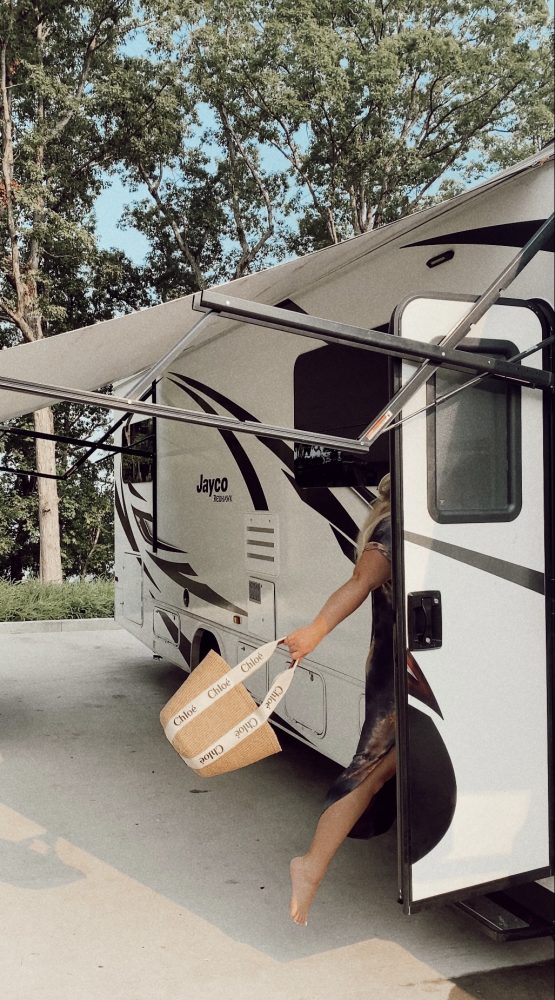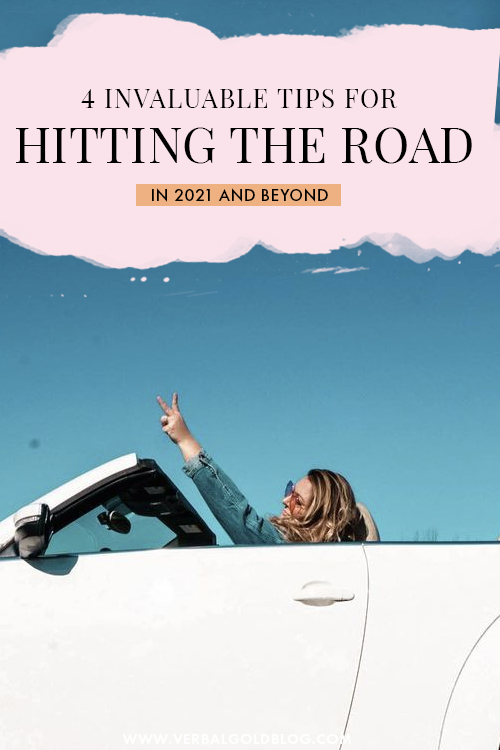
4 Tips for Hitting the Road in 2021 (and Beyond)

Over the past two years, traveling has hit its peaks and valleys, literally and figuratively. During the height of the pandemic, traveling was dangerous. Then came the wait for spring and vaccines. Now, with COVID-19 again surging across the world, travelers have learned from the early days.
As the U.S. is added to more countries’ travel ban lists, it is time to turn to the car for travel in 2021 and beyond. Safe from the cramped, crowded interiors of planes and trains, cross-country car trips are once again supreme. Luckily, there are plenty of steps one can take to ensure their next trip is as safe as it is exciting. Here are 4 tips for hitting the road in 2021.
Pick Wide-Open Spaces
As autumn approaches, it brings milder weather and beautiful sights across the country. Take advantage of the charm and (relative) safety of nature. Plan your trip around camping spots or national parks. Staying outdoors lowers your risk of getting sick. Also, it’s easier to social distance when it’s just you and some distant buffalo, serenely grazing in a meadow.
If national parks aren’t your thing, there are many other socially distant travel ideas. For example, secluded beaches provide fishing, boating, and general beach fun without the large crowds. Likewise, glamping and remote ranches offer a beautiful mix of resort-style amenities and the outdoors. And, these options ensure minimal contact with anyone outside your healthy circle.
Even if you plan on heading to crowded areas, try and avoid traditional hotels. Private rental options, such as Airbnb and Vrbo, offer safer alternatives. The safest ones will highlight their “disinfecting routines” for their guests. As well, private lodgings typically only house one guest (or family) at a time, so they keep exposure low and relaxation high.

Secure Your Finances
Before you even start planning your route, ensure that your finances are in a good spot. The pandemic has disrupted jobs, credit, and emergency funds. Try to get your financial situation back to pre-COVID-19 levels, if possible. Focus on budgeting with your vacation in mind. Pay down debts when you can, and start diverting funds to an emergency account.
Check your credit score when you start planning your trip. This will give you vital insight into your financial health. As tricky as they are, a credit card can be a great choice for a vacation. Smart use of a credit card can build your credit, and many have cash and mile rewards. A vacation is a nice way to rack up a sizable cash-back bonus. Using a card on a trip reduces the chance of losing cash along the way. If a card is lost or stolen, it can be canceled immediately. And, using a card gives a history of your travels and purchases, just in case.
Of course, credit is a double-edged blade. One should never spend more on a card than they have in the bank. Additionally, be sure to pay the balance as soon as possible. Some trips will bear a bit more heft than others. If you know that you’ll be carrying some credit debt, focus your finances on paying it off as soon as you can. Adjust your budgets accordingly. After your vacation, there might be some expenses you can live without while you cleanse your credit slate.
Stock Up on Essentials
Whether you’re traveling by car or RV, proper packing is more important now than ever. Having to head into a crowded market to pick up forgotten supplies is stressful and unneeded. Therefore, fill up on water, nonperishable foods, and medications before you leave. Also, pack for comfort! Don’t forget blankets, and bring plenty of layers. You can never have too many socks. And be sure to match your footwear with your destination.
Next to the food and luggage, prepare a comprehensive first aid kit. Include pain killers, rash medications, bug spray, and sunblock. Depending on where you’re heading, you might want to add allergy medications or even antibiotics. If you are roughing it, throw in some fire starters, flashlights, and emergency flares.
You can use a printable road trip checklist to make sure you’re properly packed. Aside from common suggestions such as toiletries and smartphone charges, these lists feature nifty ideas, including vaccination records and your health insurance card. Of course, as the pandemic continues, you should also keep a virus hygiene kit in your car, even when you’re done traveling.
Build a Virus Hygiene Kit
A virus hygiene kit (VHK) will differ from your first aid kit. This will be a specialized package of equipment and supplies to keep you safe from COVID-19 and other illnesses. As most of us have stocked up on these items over the past year and a half, completing a VHK should be easy. Get a secure plastic bin that can fit in your car (after it’s packed with your luggage). Then, fill it with the following:
- Multiple face masks or face coverings
- Disposable rubber, latex, or nitrile gloves
- Disinfecting wipes in large and small packages
- Hand sanitizer in large and small bottles
- Rubbing alcohol or bleach (never store bleach and alcohol together)
- Chemically-resistant spray bottles
- Antimicrobial laundry detergent
- Dish soap
- Paper towels or napkins
- Hand soap
- Small, sealable plastic bags
- Clean canvas tote bags
- Trash bags
- Copies of vaccinations
IMPORTANT: When stocking your hygiene kit, only use products that are considered safe. The FDA’s “do not use” list contains more than 100 dangerous hand sanitizers, alone. Also, when storing chemicals together, seal them with tape to prevent leaks. Never include any kind of heat source in this kit. And always dispose of waste and trash. Leave nature cleaner than how you found it.
Use this kit to disinfect your vehicle, your lodgings, and yourself. Whenever you leave your vehicle, assume someone has touched it. It doesn’t take long to wipe down door handles. Remember, there’s no such thing as overkill when it comes to your health. The added cleaning will also help ensure that you don’t come down with the sniffles while hiking a trail.
Though the world is still a bit scary, safe trips can be the reset you need. Be cautious on your journey, and look for uncrowded destinations. Avoid hotels and planes. Ensure that your finances are in place for whatever comes your way on the road. Lastly, keep your essential kits stocked and ready to go. Traveling during the pandemic requires extra attention, but it can lead to the trip of a lifetime.
Written by: Molly Barnes Digital Nomad Life



